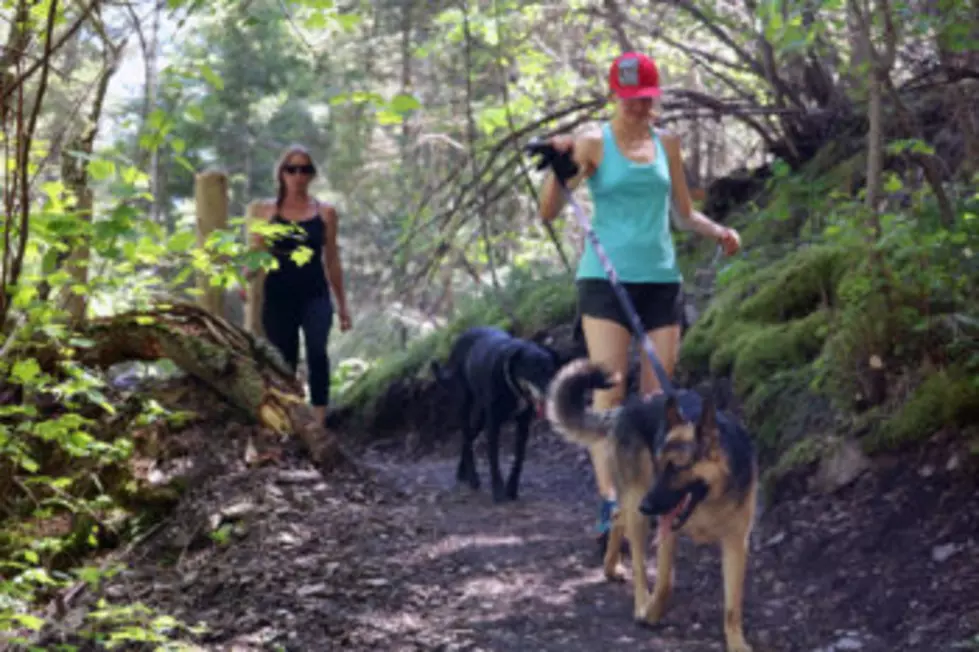
State legislators question purpose of proposed land transfer bill
The reason for a bill to prevent the state from selling any federal land transferred in the future is confusing to some while others suspect a ploy to eventually do exactly the opposite.
On Monday, Rep. Steve Gunderson, R-Libby, told the Senate Natural Resources committee that his House Bill 320 is a simple bill.
“Contrary to the many hundreds of emails and messages I’m sure you’ve received - you’ll hear further misinformation from speakers in the committee that I will clear up in my closing - it’s not a privatization of our public lands,” Gunderson said. “All it says is the state may not sell.”
That is what the bill says: The state cannot sell any land it receives from the U.S. government from now on.
The words may have been simple but the reasoning wasn’t for committee members. Sen. Bruce Gillespie, R-Ethridge, asked why Gunderson wanted the bill, because it didn’t appear like a bunch of federal land was headed for transfer to the state.
Gunderson said it was “more of a concept than anything.”
No one spoke in support of the bill. Only a few - three representatives from public land organizations - testified in opposition. However, after an online public land rally held Thursday, organizers said more than 400 participants send emails opposing HB320 and a handful of other public lands bills.
“This bill attempts to encourage large-scale land transfer by providing the illusion of protection,” said Montana Wilderness Association representative Noah Marion.
Backcountry Hunters and Anglers spokesman Eric Melson said that if the bill is passed, there is nothing to stop legislators from repealing the bill in a few years if Montana does gain more land. The state would need more money to manage the additional land, particularly in the case of emergency situations such as wildfires or floods. If the state went over budget, legislators could justify selling the land to raise money, Melson said.
“We see straight through this ruse,” Melson said.
Opponents said the state couldn’t have paid the $103 million it cost to fight the wildfires that burned federal land in Montana a few years ago. Gunderson said that didn’t apply because he didn’t see any large blocks of land being transferred – any transfer would be done in small amounts.
After being introduced in mid-February, HB320 squeaked through third reading in the House by one vote after six Republicans reversed their votes after second reading. Now, the Senate is taking up HB320 a month and a half later.
The state Department of Natural Resources Conservation opposed the bill because the state wouldn’t be able to swap any land received in a common practice of consolidating parcels, said DNRC director Amanda Kaster.
Due to federal land decisions in the 1800s, a lot of state school-trust land exists in isolated sections, which are more easily managed if they can be swapped for quality federal or private land adjacent other state sections.
After saying he knew of state land in Daniels County that he’d like to see sold, Sen. Mike Lang, R-Malta, asked Kaster if the bill would keep older state land from being sold or traded. The bill doesn’t apply to any land the state received prior to this year.
As he promised, Gunderson in his closing did reveal his true intent for sponsoring House Bill 320. He said the only reason public land organizations such as the Montana Wilderness Association and the Montana Wildlife Federation oppose land transfer is because they make more money from federal land lawsuits based on the National Environmental Policy Act or the Endangered Species Act. So he wanted to remove their “cash cow” by putting the land under state laws that don’t support such lawsuits.
“These well-intended 1970s environmental policy acts were put into place to protect our environment and the biology that lives there. Those well-intended laws have been bastardized by a cottage industry built by the environmental movement. Litigation and subsequent multi-million dollar settlements paid out by the federal government literally fund these groups,” Gunderson said. “When we pass HB320, we literally cut the legs out from under those groups that fund themselves with litigation funds won in court cases.”
Gunderson’s claim isn’t supported by nonprofit financial reports.
The Montana Wilderness Association 2019 report shows, of its total revenue of $2.5 million, it gets 90% from contributions, gifts and grants, and the remainder comes from membership dues and investments.
The Montana Wildlife Federation 2019 tax filing shows, of its total revenue of almost $800,000 million, it gets 93% from contributions, gifts and grants, and the remainder comes from membership dues and investments.
The Backcountry Hunters and Anglers is a national group that made $3.75 million in 2019. More than $1 million came from membership dues, and $2.58 million came from contributions, gifts and grants.
No federal money from lawsuits is included in any group’s filings.
The committee is planning to take executive action on the bill on Friday.
Contact reporter Laura Lundquist at lundquist@missoulacurrent.com.
